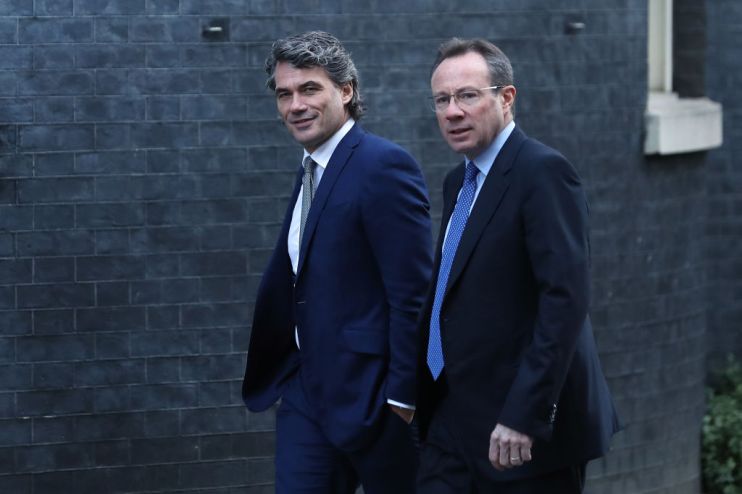BT ramps up broadband target as pre-tax profit drops 23 per cent

BT today said it would extend its full-fibre broadband network to 25m premises by the end of 2026.
The provider aims to fund the 5m additional homes and businesses through a joint venture with other parties.
It is thought the move, which could cost up to £50bn, will lead to as many as 7,000 new jobs.
“The right thing to do is take the short-term cash hit, which will of course affect us, in order to grow,” CEO Philip Jansen said.
“I am sure the share price will follow the progress of the business and I am very optimistic about it.”
Following the announcement, shares in BT dropped 3.3 per cent as markets opened.
Jansen also said he was “open-minded” on options for its BT Sports unit, after the Premier League struck a deal with broadcasters, including BT, to rollover football rights.
“It’s very possible we make no changes at all, because BT Sport now has a very clear profile and we’re happy with it,” he said.
“It’s possible that we do some sort of partnership or joint venture, and of course it is possible that we don’t end up with BT Sport because there’s a better owner of it who can invest more than we will invest.”
Profit and revenue falls
BT today reported a seven per cent drop in revenue and a six per cent fall in adjusted earnings for the year ended March 2021.
Chief Executive Philip Jansen said changes in regulation and tax, along with a new agreement on the company’s pension payments, had cleared the way to raise its fibre ambitions.
“After a number of years of tough work, and as we look to build back better from the pandemic, we’re now pivoting to consistent and predictable growth.”
Jansen has cast BT as the national champion that can build the broadband network required for a strong economic recovery in the UK.
As well as its fibre ambitions, the company said it was in talks about selling a stake in BT Sport, a move that could relieve the pressure of buying expensive rights.
Profit dipped by nearly a quarter during the period, as the pandemic took its toll on operations.
Pre-tax profit was down 23 per cent to £1.8bn, largely due to the dip in revenue to £21.3bn and increased investment in BT’s fibre network.
Office space to be cut
Jansen also said he expects working patterns to change “dramatically” at BT, with the company expecting 16 per cent less office space.
“We are encouraging and supporting people on new flexible working and we will give people the opportunity to try out how they want to work.
“We expect 16 per cent less office space. I anticipate it being a little more than that over time.
“We are not going to force anyone to do anything they don’t want to do and will support our staff in doing what makes sense for them.”
BT also said it had struck a new deal for its pension, which is one of the biggest in the country at £7.98bn.
Some £2bn of deficit will be met through an asset backed funding arrangement secured against its EE mobile business, while the balance will be met over 10 years, starting with an annual cash contribution of £900m.
Despite the challenges of the last year, CEO Jansen said BT had come out of it “as a stronger business with an even greater sense of purpose”.
“We are building a better BT for our customers, for the country, for our shareholders and for those who work for this great company – now and in the future.”